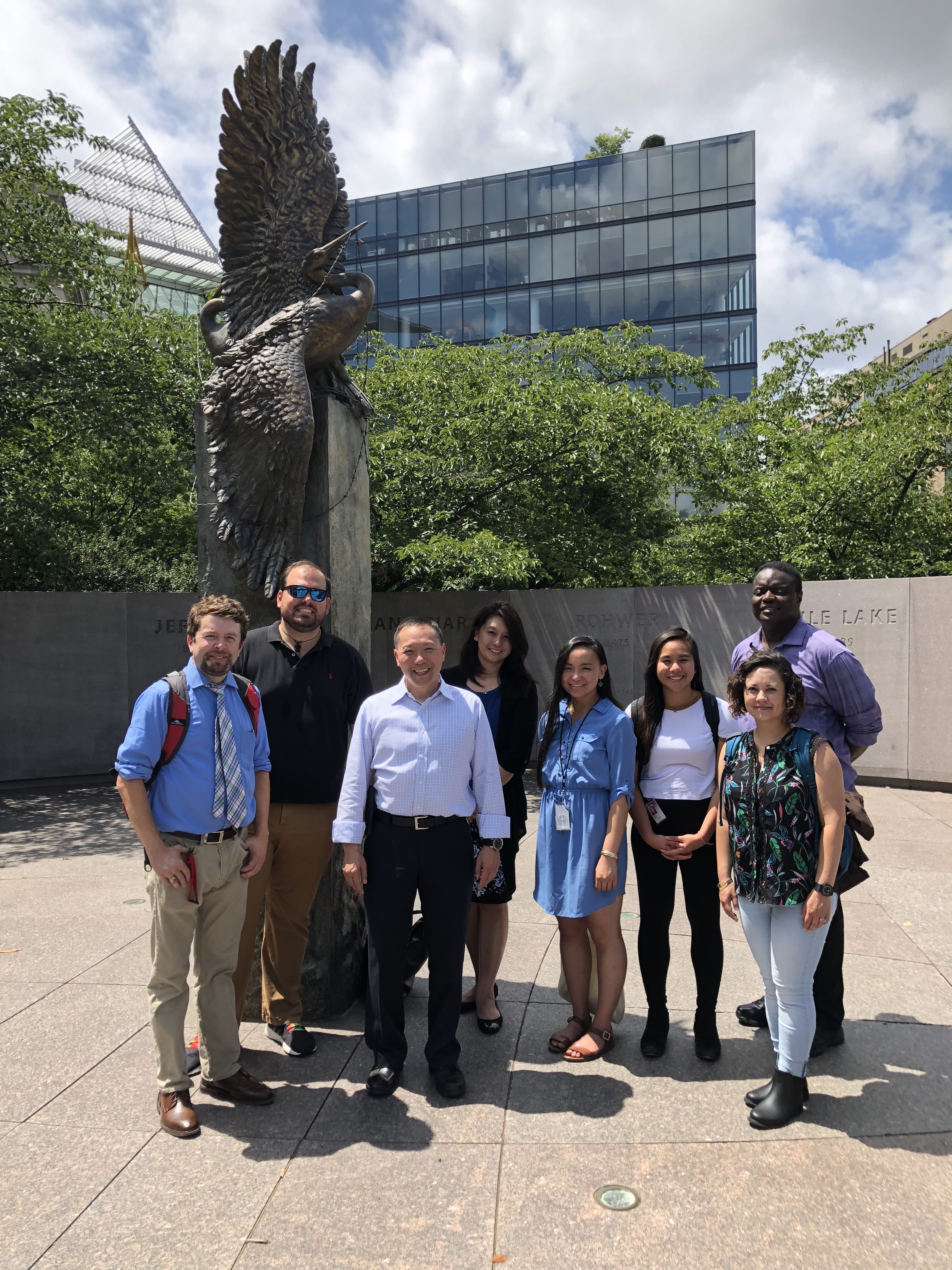Hello!
I have to say that I have really found a home at APAC. All of the staff and interns gel very well and support each other with tons of collaboration and discussion.
This internship has definitely helped me learn more about the Asian Pacific Islander American (APIA) community. There are daily discussions around the intern table that have taught about different perspectives and ideas I have never thought about. Naturally, these discussions have centered around privilege and responsibility of museums, and how we interact with communities. The most important lesson I’ve learned is that museums are not as apolitical as they seem. They are very much influenced by many different factors including people higher up in the institution, funders, the government, etc. I am amazed everyday by how much I did not know, but how much I am learning by just being in this environment. The office is also very much a safe space and provides and open environment where questions are encouraged, and there is no judgment.
We just finished up the Sandbox which was a teacher institute. We were working with an organization called the National Veterans Network (NVN) that works to educate people about the Nisei soldiers. The Nisei soldiers were Japanese American soldiers fighting for the United States while their families were concurrently living in internment camps. The Sandbox brought four teachers from different parts of the country to dry run the curriculum and participate in relevant site visits. It was a chance for these teachers to be very honest about what is helpful to have as a teacher in terms of curriculum and what the curriculum can achieve in the classroom. It was great to see teachers speaking up about what does not work because they are the ones in the classroom everyday interacting with students, parents, other teachers, and the school system.
The picture below is with the teachers at the Japanese American Memorial to Patriotism During World War II.

One of my favorite parts about the Sandbox was pretending to be students while each teacher took on a lesson to facilitate. Each and every one had a unique point of view, and you could really see their personality come out when they are teaching. They had really great insight to share, and it reminded us at APAC how important it is to have people who are going to be using the curriculum helping from the inside of the project. It also was very heartwarming knowing how much these teachers cared about their students and the work we were doing. They believed in the story and this relationship with NVN and the Smithsonian Asian Pacific American Center (APAC).
I feel as though APAC has helped me find my voice. The interns here are valued just as much as the staff. Everyone is on the same level, and has an opportunity to contribute where they so desire. When I lead an organization or group, I would like everyone to have this same feeling of knowing that they are heard, respected, and contributing to the larger picture. What they stress at APAC is that whatever the interns do, no matter how small of a task, helps APAC run and also how we think about the work, so it contributes to the larger picture.
I have also learned a lot about the behind the scenes work of the museum world. It can be very political for one thing especially because it is a federal institution. That also comes with a lot of responsibility as to what they show and put on. I have even questioned the role of museums because museums came out of a colonialistic tradition. The museum world has become much more intriguing and a possible career option in the future.
I think that this experience has also made me think a lot about being a woman in the museum world, and especially about being a minority and a woman. The museum world is very white washed and headed by men. I think in this particularly office, APAC, I find myself surrounded by people of color and by majority women but that is certainly not the case for other museums. It makes me want to push the museum world to be more diverse and equitable and to provide more spaces that are inclusive. It takes people who are willing to ask questions, to be intentional, and to care.
I hope to take all these thoughts about inclusivity and apply it to organizations on campus. APAC does a lot to be conscious of able-bodiness and equity. I am not sure how I will do this in reality, but I really want to open up that conversation as a first step. I very much love working at APAC, and even though it is bittersweet that it is coming to an end, I truly appreciate all the people here and all that I have learned.
